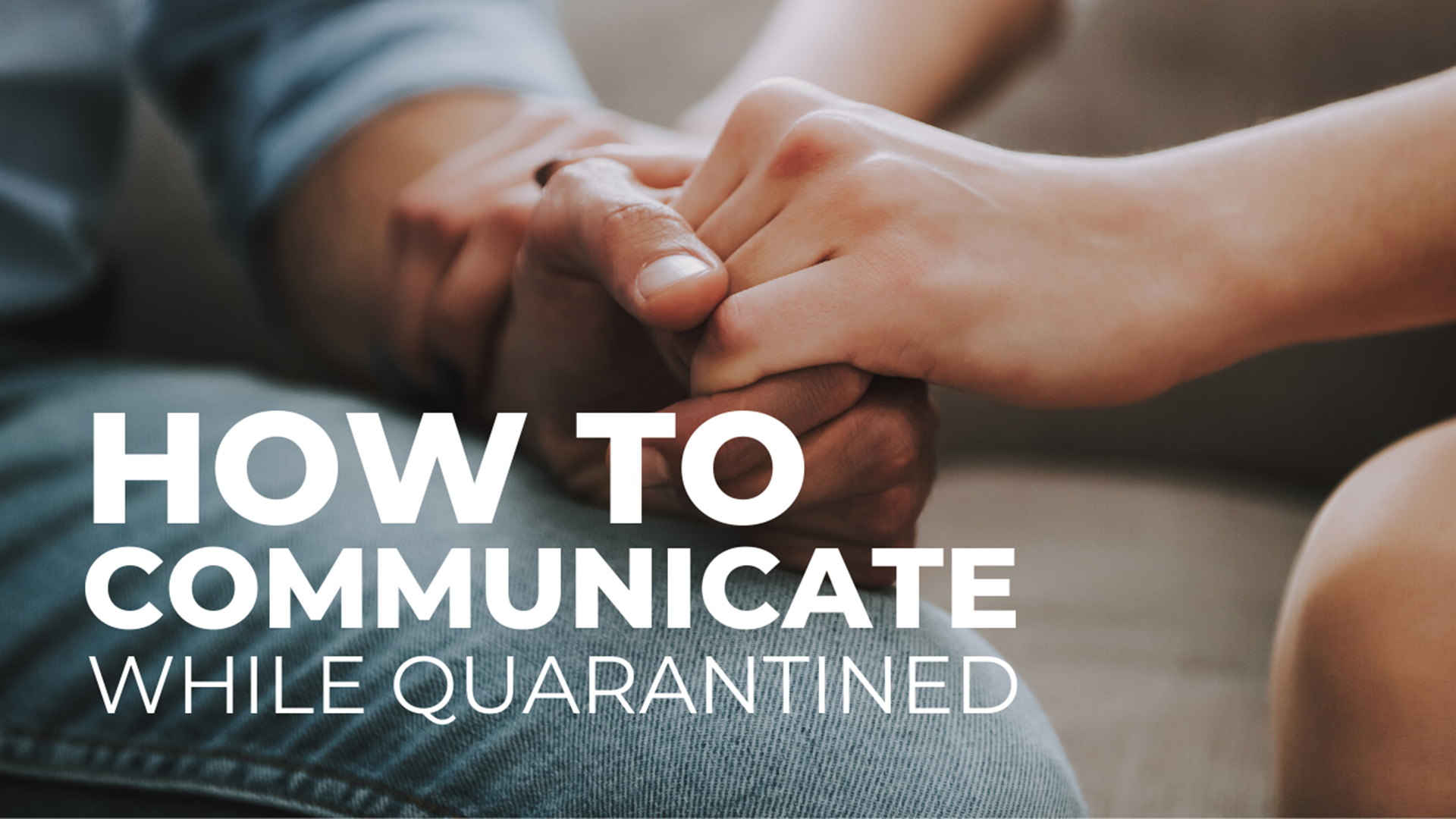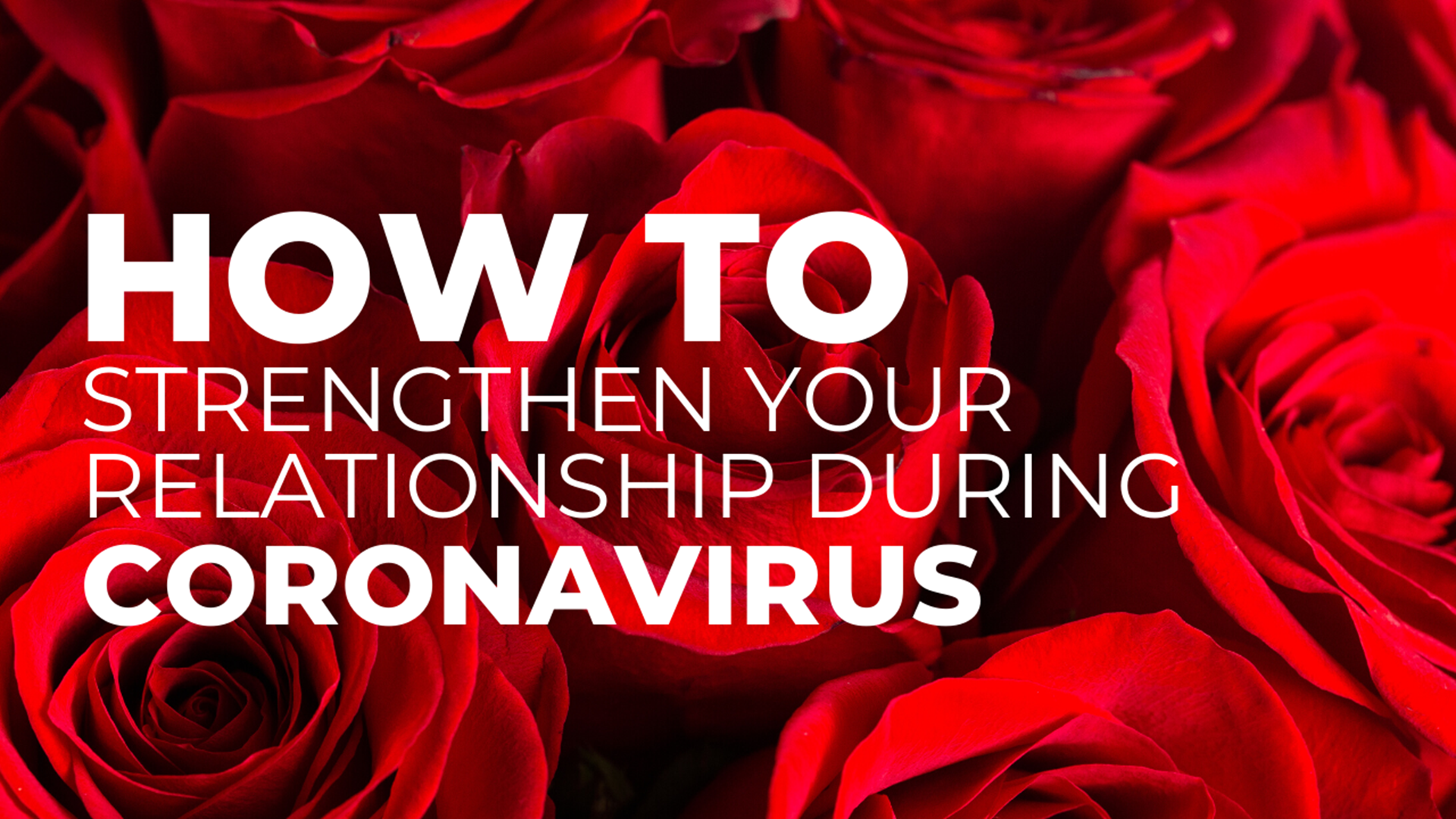PORTLAND, Ore. — We’re all a little on edge these days. And if you and your significant other are getting a little snippier with each other, it’s no wonder!
There’s a lot going on to test even the best of relationships.
It’s definitely possible to have hard conversations that don’t end in a fight but Portland psychologist Dr. Doreen Dodgen-Magee says you’ve got to have some ground rules.
“One of the primary things I’m suggesting to couples right now is to set some consistent and regular check in times. No matter what they are doing they know that-- let’s say on Tuesday night at 8 o’clock once the kids are in bed-they’re going to check in with each other about how things are going within this small space that we’re now all living in.”
Dr. Doreen says you can check in once a week or almost every day. Whatever schedule you can stick to.
“Don’t just be telling the other person what they’re not doing right or informing them about what is wrong. But instead say things like ‘I am finding that I need some more quiet in the day’ or ‘I’m finding I need a little more help with the kids’ homework’ or ‘I need a little more connection from you and maybe some more physical touch.’ Use a lot of ‘I’ statements, not expecting the other to read our minds, especially right now. Give each other a lot of space and grace. This is a really stressful time. And we know that preexisting issues in our relationships are likely going to be right at the surface.”
She recommends giving your partner extra affirmation and validation “in the way that our partner needs it, not necessarily the way we want to give it. So find out what they need and then find ways we can offer that, at the same time also asking for what we need.”
Dr. Doreen says couples should also be aware of something called the “zones of regulation.” It sounds clinical but it’s very practical. It boils down to the old adage ‘timing is everything.’
“So true,” she said. "Teachers will use this a lot in classrooms but I find it to be very helpful for couples right now. We all exist in different zones of regulation.”
It’s a color-coded deal: blue, green, yellow and red. Blue means you’re feeling low energy or a little sad.
She breaks it down this way.
“We don’t really have the energy we need to tackle a problem or face a challenge or even face connection. Then there’s the green zone which is we’re ready to go! We’re feeling energized. We’re also feeling grounded and regulated and so we can tackle conversations and tasks in healthy ways. In the yellow zone we’re starting to feel overwhelmed, frustrated or disappointed and not quite ready to be our best selves tackling a task or conversation. It’s easy to fall over into the red zone where we’re very dis-regulated, very overstimulated, super reactive and these are times where we can’t have difficult conversations without causing some damage or harm to ourselves or someone else.”
Dr. Doreen says couples should talk about these zones ahead of time.
“Have a way of delineating with each other ‘Hey, I know you’re in a green zone and ready to do a major project or have a conversation together but I’m in a yellow zone and not in that place. It can be helpful to even have just quick words that we can use like ‘yellow’ or ‘red’ that communicate to the other, ‘This isn’t necessarily about you. This is about where I am and for me to have healthy and great communication with you I need a little bit of time and space to get back into a regulated zone.”
Dr. Doreen also shared two simple words she says can improve your relationship: “Ouch” and “Oops.” This is how it works.
“When you feel offended or you feel as though your partner isn’t communicating in the way you need or with respect to you, you can simply say, “Ouch.” And that gives your partner the opportunity to kind of step back, think for a moment and say “Oops” and try again. And this can be a really, really helpful conflict resolution model that you can use quickly in any moment rather than escalating things.”
We may have a long list of things we want our partner to be but we also need to make sure we’re being good partners.
Dr. Doreen left us with this little wisdom bomb.
“I always think about airplanes where we’re instructed to put on our own oxygen mask before we help anyone else with their oxygen mask. Self care is the most important thing right now. Making sure that we are healthy as individuals, that we are giving ourselves time to think through our own big feelings and to actually work to resolve them so that we aren’t just putting them out onto our partners or expecting our partners to resolve them for us.”


